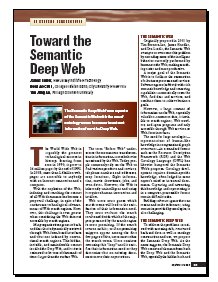Tonight, our LIBR534 class will embark on the process of learning how to answer reference questions in health. This is a lifelong learning endeavour. However, let’s begin by taking a sample question that I received today. (I’ll be doing several of these reference questions over the next while.)
 ~ Today’s reference question:
~ Today’s reference question:
1. A young, well-educated female about 35 years of age wants to find clinical trials in the last five years that discuss paxil’s efficacy in post-partum depression (PPD). One challenge is that the patient wants to locate articles that discuss some of the risks associated with taking paxil for those women who happen to be breast-feeding. I conducted a thorough reference interview.
2. What is the clinical question? In a 35 year old patient who is taking paxil for her post-partum depression (PPD), are there any clinical trials from 2003 to 2008 that discuss whether breast milk poses any risks to her baby?”
3. Important keywords for this search? Paxil is trade name; (paroxetine); SSRI is class; post-partum depression (PPD) see also: ante-natal and post-natal depression; adverse effects; risks; risk assessment; risk factors; clinical trials; infant; mother.
4. Research paxil and post-partum depression. See concepts to understand basics. See CPS; MeSH database, MedlinePlus (Drugs): Dorland’s Dictionary entry; Wikipedia has entry on Paxil and Merck; see eMedicine. Paxil is a brand name of GlaxoSmithLine. Paroxetine hydrochloride [drug name]. Drug class: selective serotonin reuptake inhibitor (SSRIs) treats depression and anxiety disorders. Admin’d orally.
5. Index terms: MeSH & keywords: Various combinations of “Paroxetine”[MeSH] AND “Depression, Postpartum” [MeSH] AND “risk assessment” [MeSH] “breast feeding”[MeSH] OR “milk, human”[MeSH] OR “lactation”[MeSH]. Keywords can be used to increase retrieval if results look unhelpful or irrelevant. Limits: 2003-2008, Humans, English, Clinical Trial. Clinical queries.
***************************************
Finally, let’s take a look at which databases I consulted.
In addition to the sources above, to start:
1. PubMed.gov;
2. Google Scholar;
3. Scirus. I like Scirus as a free alternative to EMBASE – see the range of results
4. LactMed time permitting.
5. Any print sources?
 These health librarians are the peers pushing this immersive virtual technology forward – and using it in new, innovative ways. I really should be watching this presentation tomorrow but I don’t have the ability to install the SL client on my desktop at work. For those of you who do, check it out and report back.
These health librarians are the peers pushing this immersive virtual technology forward – and using it in new, innovative ways. I really should be watching this presentation tomorrow but I don’t have the ability to install the SL client on my desktop at work. For those of you who do, check it out and report back. A vision for the next generation of the web – whether it be semantic or otherwise – is really up for grabs. In their paper (very accessible, easy to understand) “
A vision for the next generation of the web – whether it be semantic or otherwise – is really up for grabs. In their paper (very accessible, easy to understand) “ Some of our
Some of our  A special thanks to uber Canadian health librarian
A special thanks to uber Canadian health librarian 
 ~ Today’s reference question:
~ Today’s reference question: 
 Recently, I have had several clinical faculty from the
Recently, I have had several clinical faculty from the